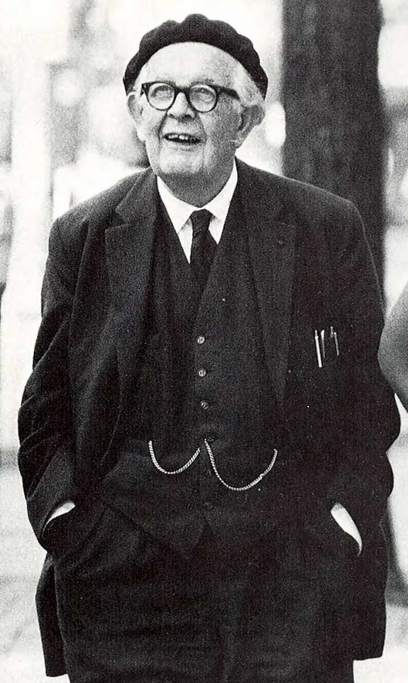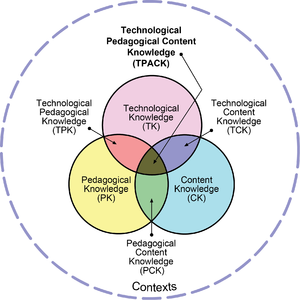„MITx 11.133x” változatai közötti eltérés
(→TPAC) |
(→TPACK) |
||
| 89. sor: | 89. sor: | ||
{| class="wikitable" | {| class="wikitable" | ||
|- | |- | ||
! [ | ! [http://www.tpack.org TPACK] | ||
|- | |- | ||
| | | | ||
[[Fájl:TPACK-new.png|300x300px|none|TPACK-new.png]] | [[Fájl:TPACK-new.png|300x300px|none|TPACK-new.png]] | ||
|} | |} | ||
A lap 2015. augusztus 12., 10:33-kori változata
MITx: 11.133x Implementation and Evaluation of Educational Technology
Implementation and Evaluation of Educational Technology
Ez a kurzus az oktatási technológiák ismertetésével, kiválasztásával és beágyazásával foglalkozik.
Ezt a kurzust azért vettem fel, hogy segítségével a legkiválóbb eszközökkel,
a megfelelő elméleti háttér birtokában építsem fel az apaBoard 2.0-hoz tartozó oktatási rendszert.
Ez az oldalon a kurzusból idézett szöveg kiemelésekből, táblázatokból és képekből épül fel, ezt használom jegyzetnek.
| MITx: 11.133x | Eric Klopfer |
|---|---|
ASSIGNMENTS
Unit 0: Welcome
Behaviorism = Bihéviorizmus
"Behaviorism posited that the brain was just like an empty slate, an empty vessel, where instruction can be poured into the brain and somehow magically we would learn it."
(Susan Yoon professor at the University of Pennsylvania)
Constructivism = Konstruktivizmus
Jean Piaget
"He came up with this theory of cognitive schema. What one does is constructs, takes in the information, and creates what we call mental maps in the brain."
(Susan Yoon)
Constructionism = Konstrukcionizmus
"If you really did hit pause and build something, what you just
did, that was constructionism."
(Eric Klopfer professor at the MIT)
Seymour Papert
Piagettel együtt dolgoztak, később tovább vitte munkáját és az MIT-n kidolgozta a konstrukcionizmust.
K12
12 years of basic education (4-6 to 17-19 years)
wikipedia
Unit 1: Foundations
"So the most important thing is to start with the goals in mind not with what technology are we going to buy." (Barbara Treacy)
Ne alkalmazzunk technológiát, csak azért, hogy technológiát alkalmazzunk!
Először a célokat kell tisztázni, csak utána választanai és vásárolni technológiát!
A helyesen választott technológia segít megalapozni a következőket:
- Creativity - kretativitás
- Collaboration - együttműködés: csapatmunka során jobban rögzül az önállóan végzett feladat is.
- Communication - kommunikáció: XXI. sz.-i munkakörnyezet
- Breadth and depth - széles látókör
- Flexibility - rugalmasság
- Assessment and evaluation - felmérés és értékelés: a tanár megfigyeli a diákok eredményességét, a módszert tovább/át dolgozhatja.
- Efficiency - hatékonyság
"Using technology will help students prepare for a 21st century work environment that requires communicating complex ideas effectively."
Digital Learning Council in Massachusetts
Digital Learning Council in Massachusetts
online learning
blended learning
"The way I look at blended learning is it's a combination of face-to-face instruction in a bricks and mortar location and combined with some ements of working at a distance."
"So it's shifting how you're using your face-to-face time, incorporating online tools and online interaction,and making that as a very powerful whole."
SMAR
- substitution
- modification
- augmentations
- redefinition
| SMAR |
|---|
Unit 2
TPACK
Technological Pedagogical Content Knowledge
| TPACK |
|---|


